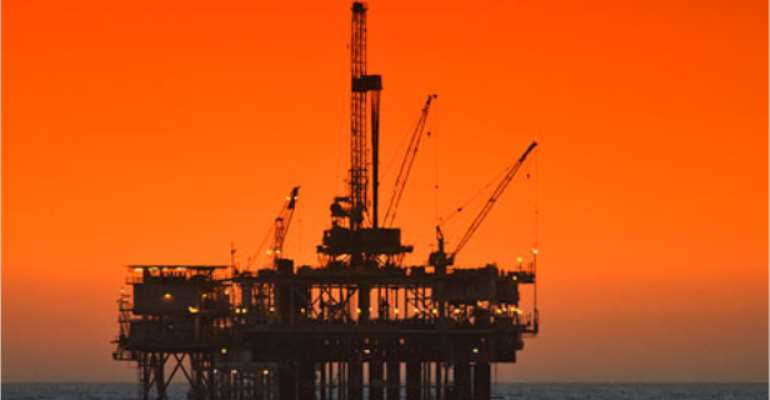Uncertainty Over Renewal Of Licences Put IOCs In A Jam

The endless struggle by international oil compa¬nies (IOCs) operating in Nigeria to have their onshore and shallow-water licences renewed by the federal government since 2008 has contin¬ued to put a damper on new invest¬ment in onshore and shallow-water assets by the majors.
The IOCs, who still view Nigeria as a source of longer-term growth, have increasingly shifted the bulk of their investment offshore, partly due to the uncertainty over onshore and shallow-water licence renewals.
About 20 mining licences, which had expired six years ago, have only been renewed yearly on an ad-hoc basis.
Licences (or concessions) entitle the holder to explore for hydrocarbons and exploit any commercial discover¬ies.
Under a licence, the holder bears the risk of exploration, development and production activities, and is re¬sponsible for financing these activities.
In 2011, ExxonMobil received ex¬tensions for three of its blocks, cover¬ing 400,000 barrels per day (bpd) of aggregate production.
Its production is expected to rise to 1 million bpd by 2020, following renewal of its shallow-water licences and investment in off¬shore PSCs.
But other IOCs are still waiting for the government to renew their licences.
Shell Petroleum Develop¬ment Company (SPDC) holds an interest in six shallow-water offshore leases, of which five expired on No¬vember 30, 2008, but are yet to be renewed by the government.
The company, in its 2013 annual report published recently, said it satisfied all the requirements of the Nigerian Petroleum Act to be entitled to an ex¬tension, but currently the status quo is maintained following a court order issued on November 26, 2008.
'SPDC is pursuing a negotiated solution with the federal government of Nigeria.
Production from the EA field, in one of the disputed leases, continued throughout 2013,' Shell said.
Chevron, like Shell is in talks to renew its rights on its concessions in Nigeria's shallow offshore, and es¬pecially on the oil-rich OML 86, 88 and 89.
BusinessDay West Africa Energy gathered that the ministry of petro¬leum resources is encouraging the oil majors to divest what is considered as near-marginal assets to enable them win an extension of their rights on their best acreage.
The ministry of petroleum re¬sources, which oversees the sector and under which the department of petroleum resources (DPR) regulates the upstream, downstream and mid¬stream markets, supports the expan¬sion of local operators' share of oil production.
Shell, according to an industry source, has been asked to put up for sale some additional assets including OML 16 and 13 to renew rights on OML 71, 72, 74, 77 and 74 on which Shell operates the EA field with its 115,000bpd.
The sell-off would follow two ear¬lier auctions of Shell's shares in mar¬ginal fields.
'We have launched a strategic portfolio review in Nigeria, regard¬ing the potential exit from interests we hold in some onshore leases in the eastern Niger Delta, subject to partner and regulatory approvals,' the company said.
In 2010, Shell divested from its stakes in eight onshore blocks since 2010 to local operators and it an¬nounced in October 2013 that it was putting up for sale four additional onshore Niger Delta oil blocks - OMLs 18, 24, 25 and 29 - that have a combined production of 70,000 bpd.
New investment hanging in the balance Oil majors are planning between $29bn and $39bn in new investment in onshore, shallow-water and deepwater projects by 2018, according to the Oil Producers' Trade Section (OPTS) of the Lagos Chamber of Commerce, the industry umbrella association.
A significant part of this invest¬ment is being restrained by the delay in renewing the licences, as well as the passage of the Petroleum Industry Bill, PIB.
Foreign players, dominated by larger IOCs, accounted for 89 percent of oil production in 2012, according to DPR data.
The six largest foreign producers were SPDC with 605,539 bpd of oil, ExxonMobil's Mobil Producing Nige¬ria (MPN) with 528,000 bpd, Chevron Nigeria Limited (CNL) with 489,999 bpd, Total E&P Nigeria (TEPN) with 400,134 bpd, Eni's Nigerian Agip Oil Company with 98,284 bpd and Addax Petroleum with 90,489 bpd.
SPDC has historically been the largest onshore and shallow-water pro¬ducer, with about 60 producing fields, 1000 producing wells spread over 33 blocks (28 onshore and five in shal¬low water), 87 flow stations, 6000 km of flow lines and pipelines, eight gas plants and two major export termi¬nals at Bonny and Forcados.
It holds mining licences for an area of around 31,000 sq km and has production ca¬pacity of 1m bpd.
Chevron Nigeria Limited (CNL) operates 13 shallow-water blocks cov¬ering 8900 sq km, producing 238,000 bpd in 2012.
Though it planned to divest its stakes in five shallow-water blocks - OMLs 52, 53, 55, 83 and 85, CNL is continuing shallow-water ex¬ploration.
Soala Ariweriokuma, general manager, economic research and data management department, NNPC, said: 'This is a policy issue and of course, at the ministerial level, and I will not want to give an indication that I have the full details.
NNPC and the petroleum ministry are very friendly organisations and they are known to collaborate seamlessly with the IOCs.
'If for any reason, licences are not being renewed, there must be factors that are responsible for it, such factors may well be on the part of the IOCs.
I think it is dialogue that can lead to the ultimate renewal of these licences, if they have not being renewed.
But I know that the ministry of petroleum resources and NNPC take the industry very seriously and for that reason they make it a priority to ensure that licenc¬es that need to be renewed are renewed on time.
' BUSINESSDAYONLNE
